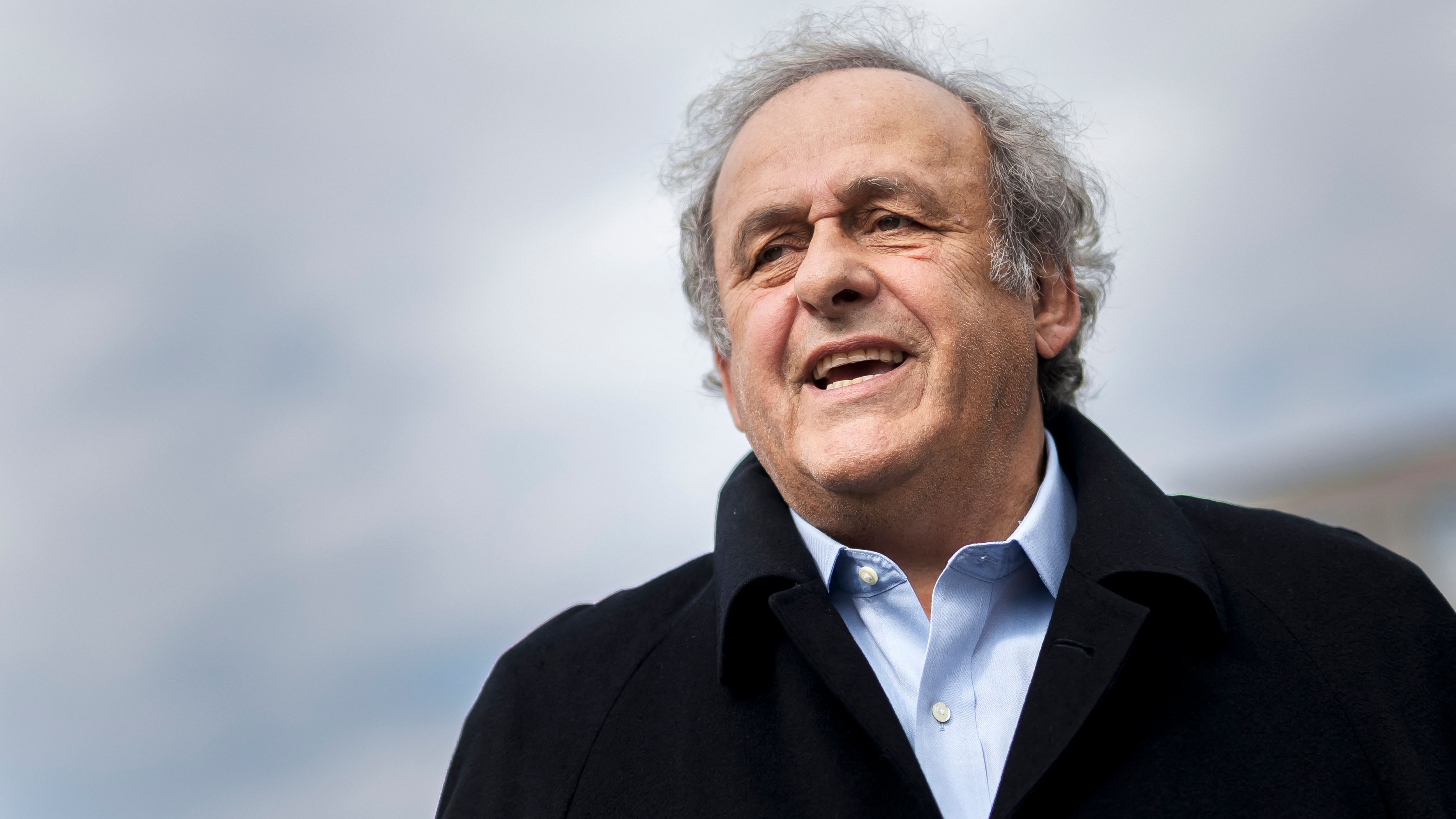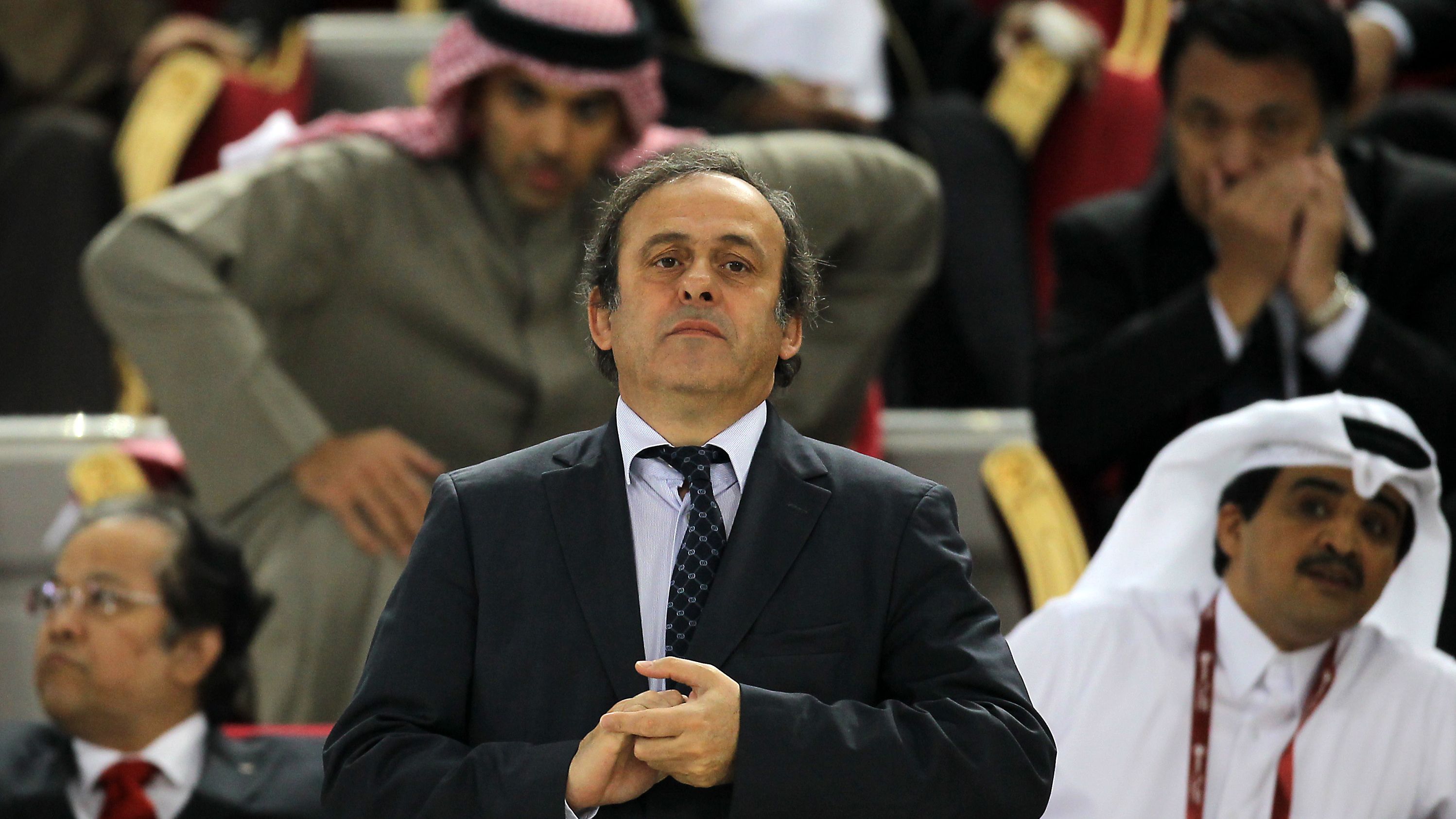Unveiling the Shadows: How Michel Platini’s Battle with FIFA Exposed Deep-Seated Corruption
Michel Platini and his ongoing fight against what he calls the “Swiss mafia” in football governance have sparked widespread debate, highlighting the murky intersections of sports, politics, and justice. Last year, the former football star was fully exonerated from corruption allegations, yet the ordeal has left lasting scars on his career and the sport’s integrity.


Michel Platini’s Legal Victory Amid FIFA Turmoil
In a significant turn of events, the Swiss Federal Criminal Court cleared Michel Platini of all accusations back in August, drawing a close to an intense legal battle that started nearly a decade earlier. This stemmed from scrutiny over a payment from ex-FIFA leader Sepp Blatter, which led to a four-year prohibition from football activities, ultimately dashing Platini’s hopes of taking over FIFA’s helm.
The Emotional Toll of the Accusations
Platini has openly shared his frustration, stating that both FIFA and the media subjected him to harsh judgment during the prolonged defense against claims of deceit and unethical behavior. He described the challenge as overwhelming, emphasizing how difficult it is to convince others of one’s innocence when doubt prevails everywhere.
Allegations of Systemic Corruption in Football’s Power Structures
Even after his clearance, Platini maintains that the harm to his standing was irreversible and predated the court’s decision. He noted that support was abundant when Blatter stepped down, with numerous federation heads reaching out, only for opposition to emerge fiercely afterward, targeting his credibility.
Exposing the So-Called Swiss Mafia
Platini didn’t shy away from criticizing what he labels as a network of influence in Switzerland that governs football’s legal frameworks. He condemned the state of justice in sports, pointing out that the Court of Arbitration for Sport receives substantial funding from FIFA, making it an extension of the organization’s executive decisions rather than an impartial body.
Further, Platini argued that FIFA’s control extends to Switzerland’s ethics and appeals bodies, fostering an environment where objectivity is undermined. He highlighted instances where prosecutors sought roles within FIFA post-retirement, illustrating a closed circle of power that perpetuates favoritism.
The Need for Reform in Sports and Legal Overlaps
As a former French national player, Platini stressed how the blending of athletic organizations and judicial systems in Switzerland has enabled improper practices to continue unchecked. He called for transformation, insisting that football is a global asset, not the exclusive domain of bodies like UEFA or FIFA.
These remarks resonate with longstanding grievances from football’s administrative community regarding FIFA’s opacity and its sway over legal proceedings. Platini’s situation has come to represent the problematic fusion of athletic rulings and authoritative control in international football.
A Parallel to Historical Injustice
In a poignant reflection, Platini drew a comparison to the infamous case of Emile Zola’s defense of an unjustly accused individual, suggesting his own experience mirrors that of someone wrongly targeted in the public eye. This analogy underscores the personal betrayal he felt during the process.
FIFA’s Motives and Internal Resistance
Platini is firm in his belief that FIFA’s leadership saw him as a threat to the status quo, intent on blocking his potential reforms. He recalled the abrupt interrogation by authorities in 2015 at an Executive Committee session, viewing it as a calculated move to sideline him.
He elaborated that FIFA opposed his leadership due to fears of overhaul, describing the accusations as a rushed tactic tied to impending elections, all designed to keep him from the presidency from the outset.
Reflections on Justice and Moving Forward
Although exonerated along with Blatter, Platini expresses ongoing disappointment in the handling of his case, noting that while the legal process concluded, he harbors no grudges and even declined any monetary settlements, though a hint of frustration lingers.
Potential Return to Football Leadership
Undeterred by his past, Platini hasn’t dismissed the idea of re-engaging in football’s administration, but with a renewed focus. He suggested that the sport requires guidance from those who’ve experienced it firsthand, hinting at future involvement without specifics.
His primary aim now is to amplify the voices of players in shaping the game’s direction, acknowledging his own age as a limitation. “I’d aim to facilitate a platform for athletes to influence football’s path,” he mentioned.
A Call for Authentic Reform
At 69, Platini holds that true change in football must come from insiders-those who have dedicated their lives to it-rather than bureaucrats or legal experts. He reiterated that the essence of football lies with its participants and enthusiasts, not institutional figures.
Platini’s Lasting Legacy and Passion for the Game
Though his aspirations for high office may have faded, Platini’s outspoken critique in recent discussions reveals his unwavering commitment to football and his resolve to challenge what he perceives as entrenched misconduct at the pinnacle of the sport.
Background on Michel Platini’s FIFA Presidential Bid
Michel Platini, the legendary French footballer turned football administrator, once aimed to lead FIFA as its president. His campaign gained significant traction in the mid-2010s, drawing on his storied career as a three-time Ballon d’Or winner and his influential role at UEFA. However, his bid was overshadowed by a series of corruption allegations that many, including Platini himself, believed were strategically used to undermine his presidential aspirations. This situation highlighted ongoing issues in football governance, where corruption allegations and political maneuvering often intersect.
The Corruption Allegations Against Michel Platini
Platini’s presidential bid unraveled amid investigations into financial irregularities, particularly a controversial payment he received from FIFA. In 2015, Swiss authorities and FIFA’s ethics committee launched probes into a 2 million Swiss franc payment made to Platini in 2011 for advisory work allegedly done between 1998 and 2002. Critics argued this payment was dubious, especially since it came from former FIFA president Sepp Blatter, who was also under scrutiny.
- Key details of the allegations: The payment was scrutinized for potential breaches of FIFA’s code of ethics, with claims that it lacked proper documentation and transparency. This raised red flags about possible favoritism and undisclosed agreements, which are common themes in FIFA corruption scandals.
- Platini’s defense: Platini consistently maintained that the payment was for legitimate consulting services rendered years earlier. In interviews, he described the accusations as “baseless attacks” designed to eliminate competition in the FIFA election, emphasizing his long-standing contributions to football without any prior ethical violations.
These allegations not only stalled Platini’s campaign but also led to his eight-year ban from football activities, later reduced on appeal. This episode underscores how corruption charges can be wielded as tools in power struggles within international sports organizations.
How FIFA Allegedly Undermined Platini’s Campaign
Platini accused FIFA of orchestrating a smear campaign through these unfounded corruption allegations, claiming the organization manipulated the narrative to protect its internal interests. He suggested that FIFA’s leadership, fearing his reformist agenda, used the ethics committee as a weapon to disqualify him from the 2016 presidential race.
- Specific tactics employed: According to Platini, FIFA expedited investigations and leaked information to the media, creating a public relations nightmare that eroded his support base. For instance, the timing of the ethics probe announcement aligned suspiciously with key election milestones, making it harder for him to rally voters.
- Broader patterns of interference: This wasn’t an isolated incident; experts in football governance have noted similar strategies in other high-profile cases, where corruption allegations serve as a means to sideline rivals. Platini’s claims pointed to a culture of favoritism within FIFA, where internal politics trumped fairness.
By framing these actions as deliberate sabotage, Platini drew attention to the need for greater accountability in how sports bodies handle internal disputes, encouraging discussions on reforming election processes to prevent such undermining.
The Role of Swiss Interference in the Scandal
Swiss authorities played a pivotal role in the investigations, adding an international layer to Platini’s accusations. As FIFA is headquartered in Switzerland, local prosecutors were involved in probing the payment and related financial dealings, which Platini viewed as biased meddling influenced by FIFA’s pressures.
Swiss Investigations and Their Impact
The Office of the Attorney General of Switzerland (OAG) initiated a criminal investigation into Platini and Blatter in 2015, focusing on suspicions of fraud and mismanagement. Platini argued that this interference was not impartial, suggesting that Swiss officials were swayed by FIFA’s influence to target him specifically.
- Timeline of events: The probe began shortly after Platini’s presidential announcement, with raids on FIFA offices that amplified media coverage and damaged his reputation globally.
- Platini’s perspective on bias: In public statements, he labeled the Swiss involvement as “orchestrated interference,” implying that it was a collaborative effort between FIFA and local authorities to neutralize his bid. This raised questions about the intersection of national jurisdiction and international sports politics, particularly in cases involving high-stakes organizations like FIFA.
Such dynamics have sparked debates on whether Swiss laws are adequately equipped to handle global corruption cases without external influences, potentially affecting future FIFA elections and governance reforms.
Implications for Football Governance and Reforms
The Platini-FIFA saga exposed vulnerabilities in football’s governing structures, prompting calls for systemic changes. Stakeholders, including players and fans, have advocated for more transparent election processes and independent oversight to curb corruption allegations from being used as political tools.
Needed Reforms in FIFA Operations
To address these issues, FIFA could implement stricter financial auditing and conflict-of-interest policies.
- Enhancing transparency: Requiring all payments and agreements to be publicly documented could prevent unfounded allegations from gaining traction.
- Protecting candidates: Establishing neutral arbitration panels for disputes during elections might reduce the risk of undermining bids through targeted investigations.
This controversy has also influenced broader discussions on ethics in sports, with organizations like UEFA pushing for updated guidelines to ensure fair play extends beyond the pitch.
Public and Media Reaction to the Accusations
Public opinion on Platini’s claims was divided, with some viewing him as a victim of FIFA’s entrenched corruption, while others saw the allegations as justified. Media outlets amplified the story, with headlines like “Platini’s Fall from Grace” dominating sports news, which further fueled debates on accountability.
- Key reactions: Supporters rallied behind Platini, citing his legacy in elevating European football, whereas critics highlighted the need for accountability. Social media played a role in shaping narratives, with hashtags like #FIFACorruption trending during the investigations.
- Long-term effects: The episode has led to increased scrutiny of FIFA’s practices, influencing reforms that aim to make the organization more resilient to internal conflicts.
By examining these elements, readers can gain a deeper understanding of how corruption allegations and external interference can shape the future of global sports leadership.









